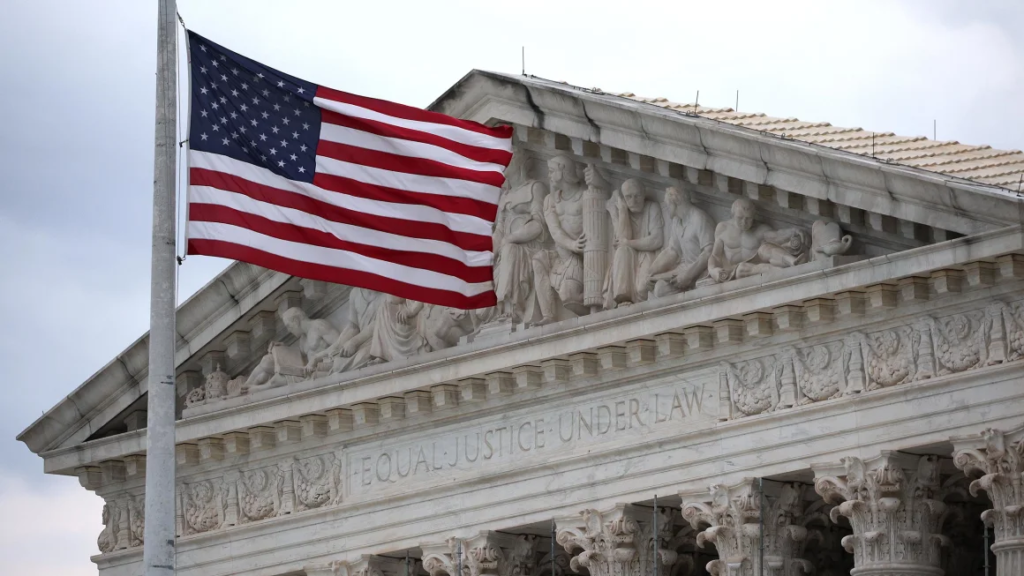
Win McNamee/Getty Images
The U.S. Supreme Court ruled on Friday in favor of President Donald Trump, allowing the administration to temporarily freeze millions of dollars in grants designated for addressing teacher shortages, marking the first victory for the administration at the high court since regaining power in January.
The decision, which was 5-4, saw Chief Justice John Roberts and the three liberal justices dissenting.
The Court reasoned that while the states involved indicated they had the resources to maintain their programs, the Trump administration made a strong case that the funds could not be recovered if spent while the lower court’s order remained in place.
In the event that the states ultimately prevail, the Court stated they could seek recovery for any funds wrongfully withheld.
Justices Sonia Sotomayor, Elena Kagan, and Ketanji Brown Jackson dissented, providing written or joined opinions explaining their positions. Roberts expressed his view that he would have denied the stay but did not, opting instead to explain his reasoning.
This ruling was a victory for the five conservative justices: Clarence Thomas, Samuel Alito, Neil Gorsuch, Brett Kavanaugh, and Amy Coney Barrett.
Steve Vladeck, a CNN Supreme Court analyst and professor at Georgetown University Law Center, characterized the decision as a “win for the Trump administration, but on remarkably narrow and modest terms,” adding that it leaves open the possibility that the plaintiffs may prevail in this case and other similar challenges. He warned that this could be a short-lived victory for the administration, potentially overshadowed by future losses in ongoing cases.
Justice Jackson criticized the Court for downplaying the harm caused to the states, citing specific examples such as schools in Boston laying off employees and the College of New Jersey canceling its teacher-residency program.
The practical impact of the Court’s order remains uncertain, as much of the disputed funding may have already been dispersed.
In addressing procedural concerns, the majority of the Court suggested that the temporary restraining order (TRO) in question was closer to a preliminary injunction, which is subject to appeal. This could have implications for other cases involving similar Trump administration policies.
Justice Jackson expressed skepticism over the Court’s intervention, emphasizing that the trial court is expected to issue a preliminary injunction soon, which could restart the appeals process.
Justice Kagan also dissented, arguing that the Court was wrong to intervene in this emergency order, given the limited legal briefing and time constraints.
The majority opinion reinforced the Trump administration’s argument that the trial court judge lacked the authority to issue the order. The Court referenced an exemption in the Administrative Procedure Act, which limits courts’ ability to issue orders in cases requiring the government to make payments on contracts.
The Trump administration sought to cancel the grants, citing concerns that they were funding diversity, equity, and inclusion (DEI) programs, a common target of the administration’s policies. The administration’s actions affected 104 out of 109 grants, without providing specific details on which DEI programs were involved.
States that depend on these grants, including California, Illinois, and New York, sued, leading to a temporary order blocking the freeze. An appeals court upheld that order, prompting the administration’s appeal to the Supreme Court.
The administration’s appeal argued that a single district court judge should not be able to dictate national policy, a position previously raised by past administrations when faced with adverse rulings.
This case is part of a broader pattern of emergency appeals from the Trump administration, including other cases related to birthright citizenship and the use of wartime authority for deportations. The Court has already resolved some emergency appeals, including one concerning the head of an independent agency investigating whistleblower claims.
4o mini